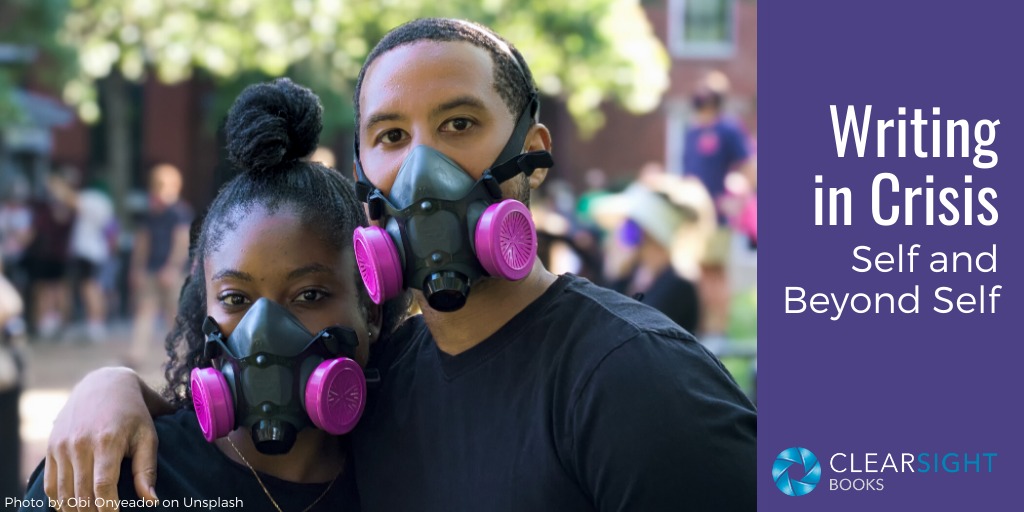
To say there’s been a lot going on in the world the past few months would be a bit of an understatement. On top of the physical distancing and over-Zooming of the coronavirus pandemic, the death of George Floyd and the resultant protests have caused emotional turmoil: shock, grief, insight, awakening.
I want to talk a little bit about writing in and about crisis, whether at a societal level like police brutality and racial injustice or at a personal level, such as dealing with a major illness or job loss. My intent is not to sound too dispassionate or to ignore the current crises, but rather to offer some context for thinking about crisis writing and how to approach it.
Capture your emotions
Art is the synthesis of three things: emotion, intellect, and craft. Author and teacher Zelda Lockhart gives her workshop students exercises to help them start their writing from a place of emotion. Her argument: the intellectual component can be analyzed and improved upon, the craft can be practiced and refined, but if emotion is not there from the start, it’s difficult to add later.
So when you have the chance to capture strong emotion, take it.
When you feel uncomfortable with crisis or the events of the day, sit with the discomfort. Pay attention to it. Do some free-writing in your journal. If you’re a fan of Julia Cameron’s The Artist’s Way, write your stream-of-consciousness morning pages. Just get the emotion on the page. Get it raw, and get it while you can. It is harder to reach back into your memory banks to remanufacture the emotion later.
Discern your purpose
Once you’ve got a jumble of emotion on the page, recognize that practically no one will want to read your “therapy.” (And if they do, I’ve got a shelfful of notebooks filled with my own “therapy.”)
So you have a decision: Have you gotten what you need from the writing process? Are you ready to move on? If so, set your scribbles aside, and go in peace.
Or, are your scribbles something you want to develop into a piece of writing to publish?
If you choose to keep writing, recognize that heightened emotion can be a blessing and a curse. It can result in powerful, thunderous words, and it can blind you to other people’s perspectives and how your words will land with readers.
So don’t dawdle on a timely topic, but do allow yourself enough time and space to see your words with some objectivity.
Assess your role
Finally, once you’ve written your article or blog post or poem, read it again through the eyes of multiple audience members. Is this the right message for you to deliver? Or flipped: are you the right person to deliver this message?
If you are writing about racial justice or the Black Lives Matter movement and you are not Black, assess whether you are centering yourself rather than the people and issues at hand.
If you are writing about a personal crisis (death, illness, etc.), ask whether the story you are telling is truly yours to tell.
You may be good to go—so publish!
But if you feel that pricking at the back of your head saying, “Mmmm, not sure this is yours…,” you may decide to tuck your writing away in a drawer.
If you develop something and then choose to keep it private, do not consider it wasted. Everything you write is practice for the next piece.
As a general principle, I believe art is about connection and is meant to be shared. But sharing goes both ways: sometimes we need to be the listener rather than the speaker, the reader rather than the author.
Peace.

